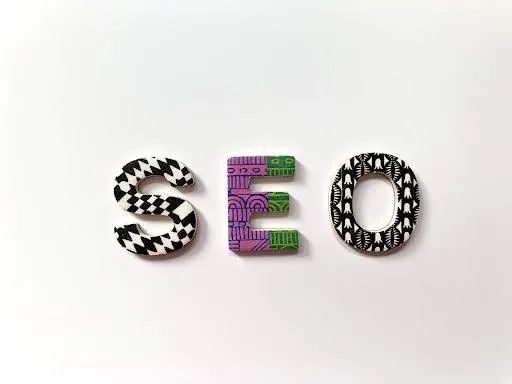
5 Ways to Improve Your Business’s SEO
Having a website is an essential part of any marketing strategy, but many businesses forget that digital strategy goes beyond that. By optimizing your website's SEO, you can make sure you rank higher in search results so that more people can find you. Check out our guide to SEO and 5 easy ways to implement it today!
What is SEO?
Search Engine Optimization (SEO) refers to the process of getting organic, free traffic to your website through search engine results. Major search engines such as Google, Bing, or Yahoo have primary search results where content is ranked based on what the search engine algorithm considers to be most relevant to users.
Keywords: Their Importance
Adding keywords to your website supercharges it to be ranked higher on search engines and help your customers find you. Keywords are the terms and phrases that your customers enter into search engines when researching your business, services, or industry.
To drive traffic to your website, you need to determine which keywords are right for your business. You can begin your keyword research by evaluating your competitor’s websites. Check and see what keywords they’ve included and are ranking for. A few changes to your page may be all you need to stand out!
Keyword research will show you which topics people are interested in and how popular those subjects are with your customers. By doing research on popular keywords for your business or industry, you can choose how to create and sort your own content. This will essentially help you answer the questions that your customers are asking.
If you want to add keywords to your website, you can go through each page of your website and identify a different keyword phrase for each page, thinking about how your customers might search for the information on that page. Once you’ve decided on the keywords to include on your website, you just need to find a place for them.
Keywords can be used in a website’s URL, page title, headings or subheadings, and website copy. Keep your keywords natural and use them in a manner that enhances your site's readability and user-friendliness. Remember to never unethically stuff keywords in your website.
Update Your Website Content
Regularly updating the content on your website will improve your search engine rankings and show your customers that your webpage is the place to be. Do not be afraid to add new content and messaging to your website, even if your product offering has not changed.
Stay updated with industry trends as they can be a helpful source of inspiration for creating content. Keeping your content fresh is seen as one of the best measures of a website’s relevancy, so set a reminder at least 2-4 times a year to audit your content and update as necessary!
When you have high-quality content that has been created specifically for your customer, they’ll want to stay longer, a digital marketing concept called dwell time. The longer your dwell time, the higher your SEO, which will increase traffic to your website as well as improve your website’s influence.
SEO is also enhanced when customers bookmark your website. When you publish engaging content frequently, you'll create a website people will want to return to, increasing your chances of being bookmarked.
The Picture Is Mightier Than The Sword
Often, people do not realize that your website's photos can have a lot of metadata that will affect your search engine optimization. Metadata refers to the data on your website that describes and provides information about your website. You can optimize your photos by renaming the files with keywords that describe the photo, your business, or your industry.
Don’t go overboard and overload each photo with dozens of keywords because search engines could perceive this as spam and it could actually hurt your SEO. You can also add a caption to your photo if that would be beneficial to provide your audience with a better understanding of the visual.
Get Faster Load Times
It doesn't matter how good your content is if your web pages load slowly. Websites that don't load within 4-6 seconds are too slow.
A slow website drives away users, negatively affects how customers perceive your brand, and ranks you lower on search engine results. One of the potential causes of a slower website could actually be the content that’s on it.
For example, large image files and external links can cause your website to lag as it’s loading. You can reduce this time by compressing image files or limiting your use of external redirects. When optimizing your website’s load time, it’s important to enhance both your page speed and server response time.
It’s All About (Back) Links
Adding links to your website creates an interconnected experience that’s attractive to both search engines and customers. You should add a link to your website when:
Writing a blog and connecting it to another page on your site that’s relevant to the topic
Talking on social media about the products or services your offer
Creating a call-to-action so your customers can reach out to you
You should never link to anything on your website by saying, "Click Here," as this provides no value to search engines. In addition to improving your SEO, descriptive links or keywords are rich in information for both your readers and search engines.
Incorrect: “Click Here” for our full offering of digital marketing solutions.
Correct: [BUSINESS NAME]’s Digital Marketing Solutions are perfect for your business!
Improving the SEO of your website can seem like an overwhelming task with ever-evolving best practices, but at Ear Level Marketing, we’re here to keep your website best optimized for SEO so you can focus on running your business. Visit our website for more information or to set up a consultation.
